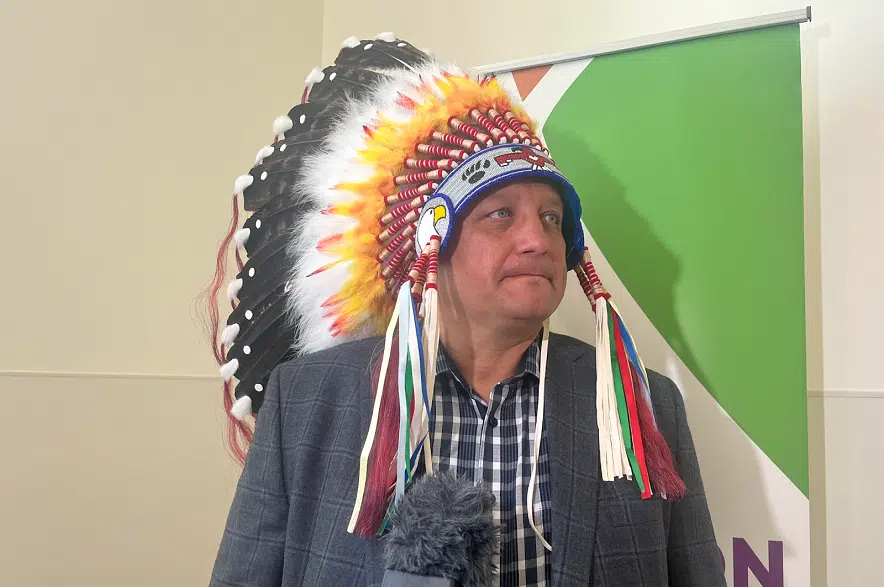Saskatoon Tribal Council’s pilot project to provide long-term housing for people facing homelessness has been funded for another year.
Tribal Chief Mark Arcand said the Sawêyihtotân Project has been showing a lot of results.
“We’ve housed many families with this project,” said Arcand. “It’s really supporting the outreach of the City of Saskatoon.”
The project received a $350,000 grant from the provincial government to fund the project for another year.
Sawêyihtotân helps people at every stage and doesn’t just help with housing, said Arcand. He said the program’s main priority is helping people facing addictions or mental health struggles by getting them the proper resources that they need in order to succeed. The program is grounded in Indigenous holistic care.
“It’s not just saying, ‘You’re in a house now and you’re fine.’ It’s actually continuing that work to make sure that they’re stable,” said Arcand.
People struggling with addictions are often referred by the program to detox homes. They can also be referred to the Sawêyihtotân Transitional Home, a four-month program in a sober living environment.
Sawêyihtotân goes another step further as well. Arcand said the program works to ensure people can begin supporting themselves financially. The program does this by helping people find jobs or navigate their way through beginning their education.
“Once we’ve placed people in homes, it’s also the after-care,” said Arcand, “going in to check on them to make sure they’re still on the right track.”
Between April of 2022 and March of this year, the Sawêyihtotân project has helped house 56 adults and 66 children. The number of individuals and families that remained housed after six months in that time period was 46.
Arcand said the program’s workers meet with 100 new people each month in Saskatoon who are in need of support.
“The sustainability of people being in housing for three months, six months, it’s because of the holistic care,” said Arcand.
The Sawêyihtotân project helps people in four stages. The first stage is mobile services. That includes outreach teams talking to people living on the streets or in encampments. Teams check in on them regularly, providing resources for when they’re ready for more permanent help.
The second stage is transitional homes. This gives people four months in a sober living environment. Individuals are not kicked out if they relapse, but instead are met with a safety plan to work through the relapse.
The third stage is supported family housing. That’s getting people into homes where staff are on site to help them transition and help them on their sobriety journey.
The final stage is placing people in their long-term homes, and working with teams to ensure the people can stay there and support themselves financially. Teams will check in on individuals and families for as long as they need the extra help.
Arcand said he believes a program like this should no longer be considered a pilot project.
“We’ve shown great outcomes in results, and I think that’s why we’re getting the support we need from the province to actually fund this,” said Arcand.
“I think it’s going to move to the next phase, which is a permanent project.”







